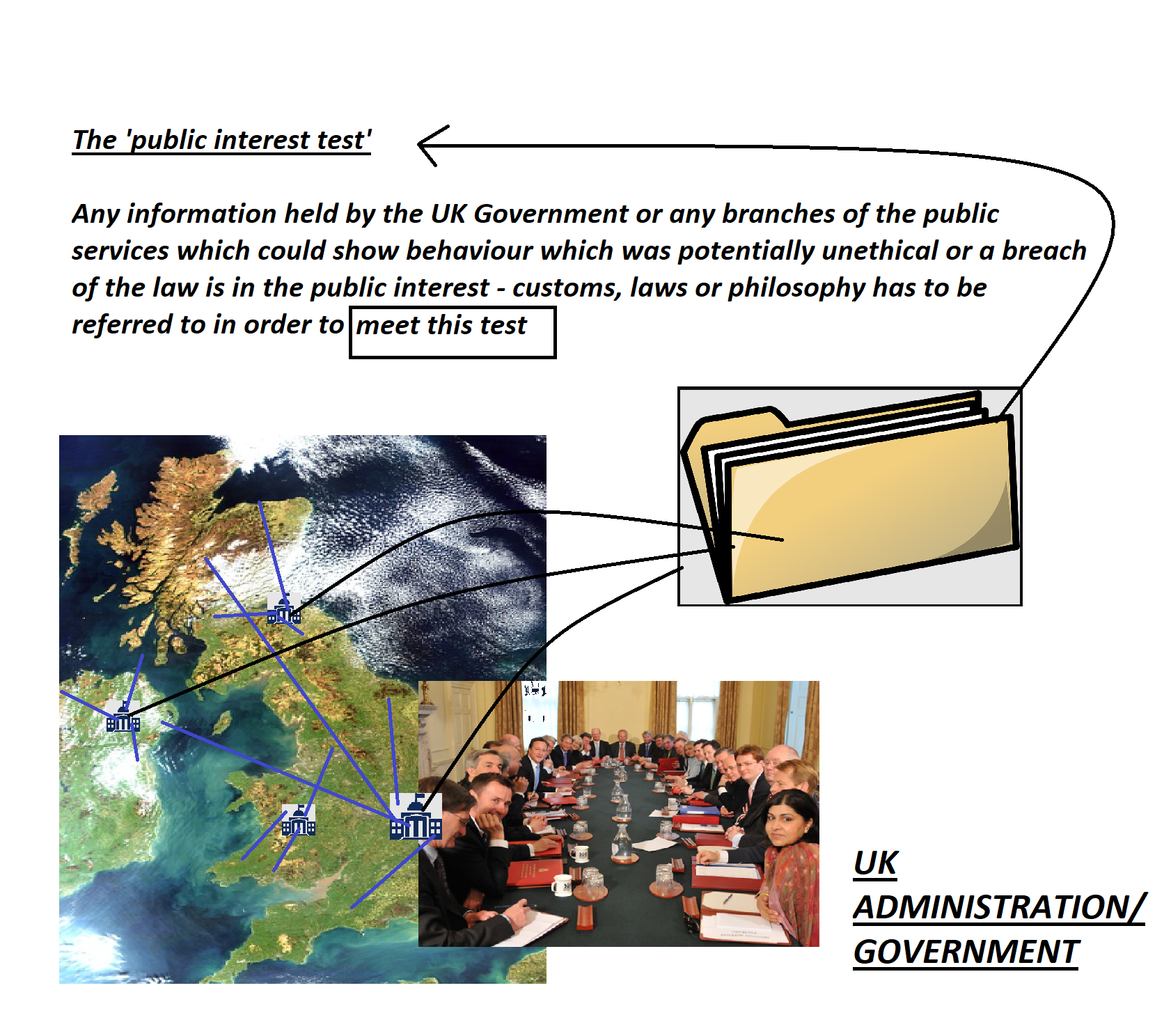Duncan v. Cammell Laird & Co Ltd [1942] 1 All ER 587
Citation:Duncan v. Cammell Laird & Co Ltd [1942] 1 All ER 587
Rule of thumb:What is meant by ‘the public interest’? If information could show a breach of the law or show unethical conduct then this is in the public interest. The test of harming the public interest is extremely high and only applies in exceptional circumstances.
Judgment:
The Court further explained the scope of public interest. The Court affirmed that (a) public criticism, (b) result in public sector workers or ministers being called as witness, (c) show a lack of efficiency, or (d) open to the Government up to more claims, were not considered the ‘public interest’. The public interest means that it would cause ‘damnation’, namely, (a) national defence, (b) diplomatic relations, or (c) would massively affect the functioning of the a public service, then these do not have to be produced.

Ratio-decidendi:
‘It would not be a good ground that, if they were produced, the consequences might involve the department or the Government in Parliamentary discussion or in public criticism, or might necessitate the attendance as witnesses or otherwise of officials who have pressing duties elsewhere. Neither would it be a good ground that production might tend to expose a want of efficiency in the administration or tend to lay the department open to claims for Compensation. In a word, it is not enough that the minister of the department does not want to have the documents produced. The minister, in deciding whether it is his duty to object, should bear these considerations in mind, for he ought not to take the responsibility of withholding production except in cases where the public interest would otherwise be damnified, for example, where disclosure would be injurious to national defence, or to good diplomatic relations, or where the practice of keeping a class of documents secret is necessary for the proper functioning of the public service. When these conditions are satisfied and the minister feels it is his duty to deny access to material which would otherwise be available, there is no question but that the public interest must be preferred to any private consideration..’, at page 11, Viscount Simon, Lord Chancellor. Where a Minister cannot provide a clear reason for why it is in the public interest then the interests of justice overrides this, ‘It would not be a good ground that, if they were produced, the consequences might involve the department or the Government in Parliamentary discussion or in public criticism, or might necessitate the attendance as witnesses or otherwise of officials who have pressing duties elsewhere. Neither would it be a good ground that production might tend to expose a want of efficiency in the administration or tend to lay the department open to claims for Compensation. In a word, it is not enough that the minister of the department does not want to have the documents produced. The minister, in deciding whether it is his duty to object, should bear these considerations in mind, for he ought not to take the responsibility of withholding production except in cases where the public interest would otherwise be damnified, for example, where disclosure would be injurious to national defence, or to good diplomatic relations, or where the practice of keeping a class of documents secret is necessary for the proper functioning of the public service. When these conditions are satisfied and the minister feels it is his duty to deny access to material which would otherwise be available, there is no question but that the public interest must be preferred to any private consideration..’, at page 11, Viscount Simon, Lord Chancellor
Warning: This is not professional legal advice. This is not professional legal education advice. Please obtain professional guidance before embarking on any legal course of action. This is just an interpretation of a Judgment by persons of legal insight & varying levels of legal specialism, experience & expertise. Please read the Judgment yourself and form your own interpretation of it with professional assistance.

